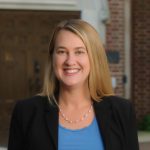I will soon post the first interview of my interview series with VAP and fellowship directors. My goal is to post one a week over the summer. I have now conducted several interviews, however, and I wanted to take a few moments before the series officially starts to reflect on it more broadly.
First, a huge thank you to the faculty who have spoken with me over the past few weeks about their schools’ VAP and fellowship programs. I have to imagine that it is a bit intimidating to sit for a lengthy interview, knowing that the transcript will be picked apart by Internet commenters. And yet almost every school that I have contacted has agreed to participate, and no one has objected (at least much!) to my pages of questions.
Second, the interviews were long. Like, really long. Most lasted over an hour, and the transcripts are typically 15 or more typed pages. This format has costs and benefits. The costs are obvious—it’s a lot to read! And the transcripts reflect normal conversations—sometimes the speaker goes off topic, sometimes they don’t answer the exact question that I asked, and sometimes they aren’t as clear as they might be if they were writing out their answers. In other words, they talk like any of us would likely talk in these circumstances. Indeed, this whole process has made me acutely aware of my own verbal tics. On the flip side, it’s easier to get helpful details through a conversation. People share more when they are talking more informally, and this format also allowed me to ask follow-up questions where appropriate. So forgive the length of these transcripts. I do recognize that not everyone will want to read the whole interviews, so I am working on putting together a chart that will include more stripped down information about these and other programs.
Third, full disclosure about the transcripts themselves — these are edited transcripts, not exact transcripts. My goal is to provide information to prospective fellows that is as helpful as possible, so if the interviewees wanted to add or edit information after our conversation, that was fine with me. And if the details of particular programs change down the road, I have told them that I have no problem if they want to edit the transcript.
Fourth, I want to be transparent about my goal with respect to this series. I know there are people who think our whole system of hiring is crazy and want to burn it down (so to speak), and these people may well be frustrated that I am not using this series to more aggressively challenge the status quo. I understand those critiques, as I have mixed feelings about the system myself. But the fact is that this is the current on-ramp for nearly all law faculty today, and yet we have almost no systematic information about how these programs work and how people can be successful in them. Maybe those of us already in the profession should build additional on-ramps, but in the meantime, I think we have an obligation to make the current system more transparent.
Finally, if there is a particular program you want to learn about, let me know, either in the comments or by email! I can’t interview faculty from every program, so I am trying to do a mix of different types of programs. I want big name programs, as well as ones you may not have heard about. I want programs where fellows teach in legal writing programs, programs where they teach doctrinal classes, and programs where the responsibilities relate more to running a center. So far, I have reached out to faculty connected with Harvard’s Climenko program and Reginald F. Lewis Fellowship for Law Teaching, Chicago’s Bigelow program, Stanford’s Thomas C. Grey program, Columbia’s Associates-in-Law program, NYU’s Lawyering Program, Yale’s Center for Private Law, Wisconsin’s Hastie fellowship, Tulane’s fellowship program, and a few others. I likely have room for three or four more, and I am willing to take suggestions!
With those caveats out of the way, stay tuned for the first interview transcript soon!
This series is cross-posted on PrawsBlawg.
